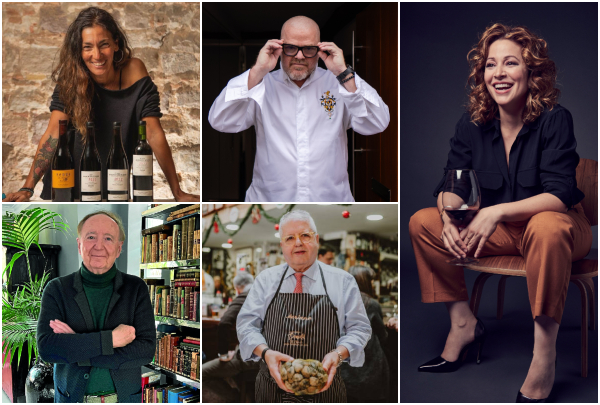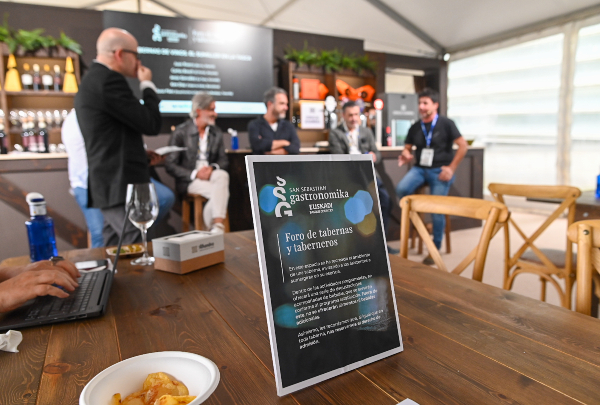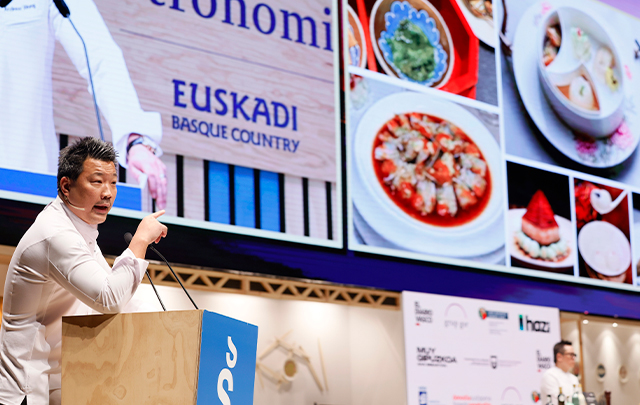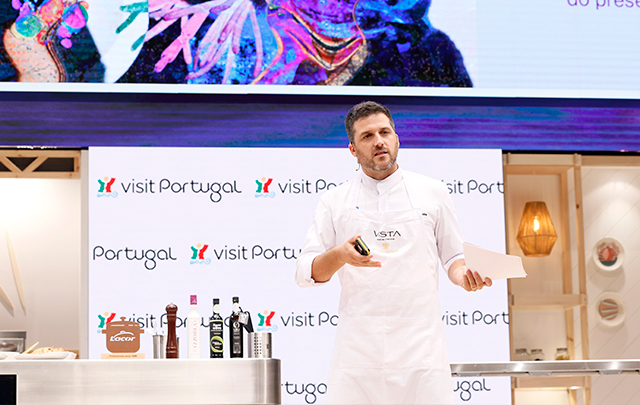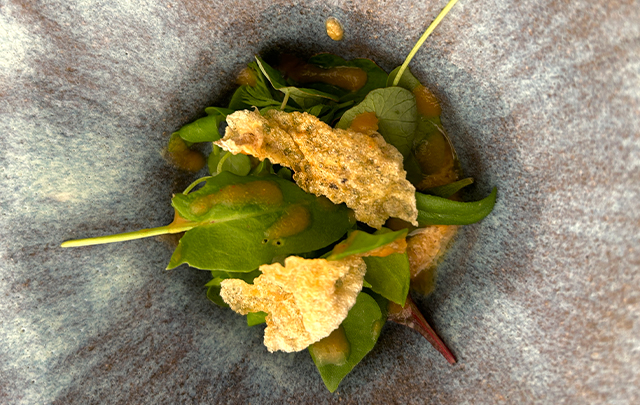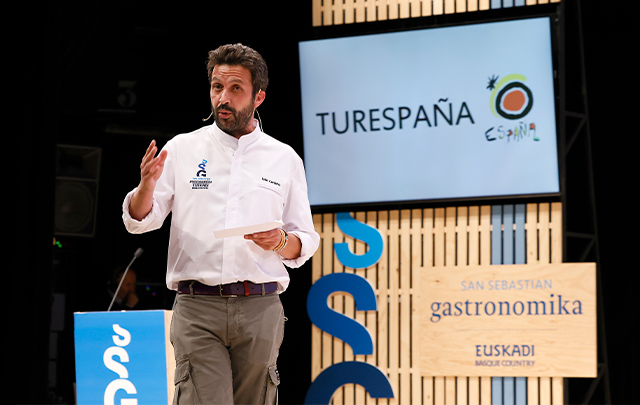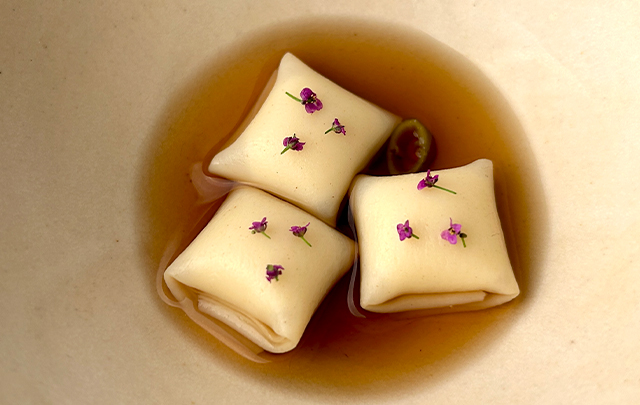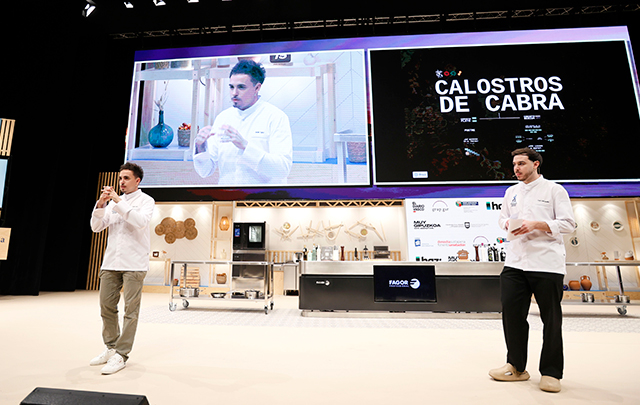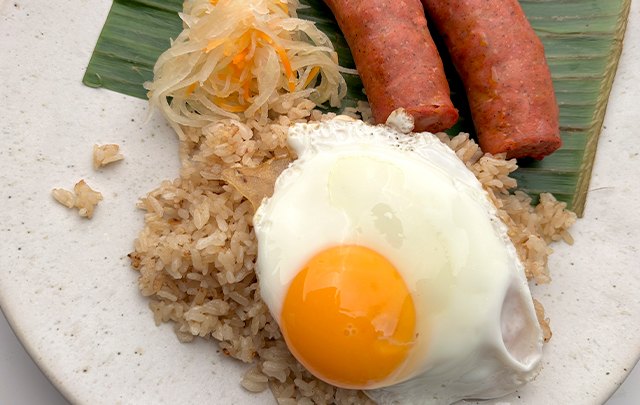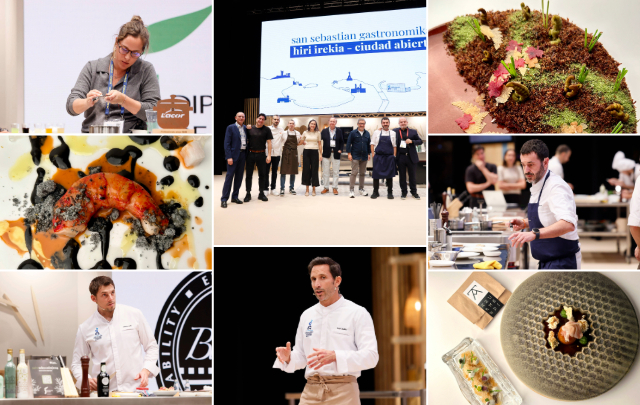News
San Sebastian consolidates its position as a city of cuisine in the most open and participatory edition of Gastronomika
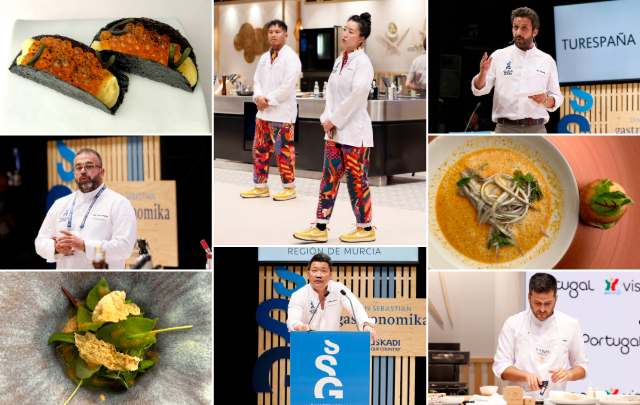
The quality of the presentations in the main hall was very high, with several world-class techniques on show.
San Sebastian, the city of cuisine, today bids farewell to the most open and participatory edition of Gastronomika, which will be remembered as the year in which Ricard Camarena beat artificial intelligence in the most advanced technological exercise ever carried out at a culinary congress, and in which tavern owners asserted their relevant role in the gastronomic scene. It was also a year with a very high level of presentations in the auditorium, with new techniques from all over the world, and in which a woman won the National Barbecue Championship for the first time. In addition, and as a novelty, the congress went out into the city to bring other cuisines to the bars and taverns of San Sebastian, even taking the participants to the heart of the gastronomic societies.
Gastronomika consolidated last year's figures with 14,780 accredited participants from 48 different nationalities and the presence of 1,339 congress participants in the auditorium, some of whom were able to sample the more than 10,000 tastings served. The marquee that hosted the 1st Taverns and Tavernkeepers Forum was also full, with more than 500 different people occupying the 70 seats available during the two days of this new initiative.
The product and its producers
In the Auditorium, the third day of presentations proposed a journey from Chicago to London, with several stops in Spain. Tim Flores and Genie Kwon (Kasama*, Chicago, USA) presented their business model, which has two striking features: on the one hand, it specialises in Filipino food; and on the other, it has two very different aspects in the same restaurant: a casual takeaway and bakery offer during the day and a 13-course tasting menu at night.
The first stop in Spain was Casas Ibáñez, Albacete, with Javier Sanz and Juan Sahuquillo (OBA*). They based part of their presentation on colostrum, but they also talked about creative processes that deconstruct each ingredient to take advantage of all its properties, liquid and solid.
And from Albacete to the Canary Islands. Juan Carlos Padrón (El Rincón de Juan Carlos**, La Caleta de Adeje, Tenerife) explained the evolution of his business since he opened his first restaurant with his brother and mother 21 years ago. Today, they also have a consultancy service and another restaurant, Poema, with a Michelin star. The road to success has not been straight, and Padrón is keen to defend the importance of family restaurants: "We are very passionate, we take great care, because the first thing is to feel good with your family, but that is also reflected in the kitchen.
Iván Cerdeño (Iván Cerdeño**, Toledo) has a different concept, that of the cuisine of the environment and memory. Our cuisine is based on the environment, but not only geographically, but also socially and culturally,' he explained, before going on to talk about another important aspect of his creative process: inspiration from historical recipes. We believe that we are the authors of fusion cuisine, but it has been around since people started being curious about what was happening in other parts of the world," he said.
The congress had to stop off in Pontevedra, at Casa Solla* (Poio). Pepe Solla brought two sea bass to the auditorium to demonstrate, with the help of a professional angler, the importance of the death of the fish when it is later preserved in one way or another. But he left many more reflections on the role of the product, the products, on how the technique is often overlooked, and he formulated a chimera aloud: "One day we should be able to ensure that what comes out on the plate is as exceptional as when it lived in the sea".
The presentations bid farewell to the national chefs and then to Portugal, the host country. João Oliveira (Vista*, Portimao) focused on inspiration, knowledge and the creative process to explain the almost ten years he has spent as head chef at a restaurant overlooking the sea in the Algarve. And he does so in every sense of the word: for his views and because he has developed a formula in which only fish protein and vegetables are the protagonists of his dishes. We will continue to learn. We have our own line and we know where we want to go. We will continue to dream,' he warned.
The last talk of 2024 took us to London with Andrew Wong (A. Wong**, London). He started with the surprising premise that 'there is no such thing as Chinese cuisine', from which he went on to describe a universal cuisine that is moving towards purity and minimalism.
A parrillera wins the grill competition
The National Barbecue Competition was, as usual, the highlight of another edition of San Sebastian Gastronomika. The 26th for the congress and the fifteenth for the competition, a classic among lovers of meat and the art of grilling. This year's winner was Vanesa Martín, from the El Alfoz de Burgos restaurant in Villagonzalo de Pedernales, who won her place in collaboration with the Guikar meat company, which was named the best meat in Spain.
The finalists in this edition were Maun, from Donostia (with Cárnicas Goya); Restaurante Fermín Calbetón (with Arcecarne); El Alfoz de Burgos, from Villagonzalo de Pedernales (with Guikar); Asador de la Reina, from La Zubia, in Granada (with Rubiato Paredes); Asador Olivi, in Usurbil (with Discarlux); The Txotx Gourmet, in Donostia (with Makro Distribución Mayorista); Parrillas El Paraíso de Riberas, in Soto del Barco, Asturias (with Cárnicas Trasacar); and Sifonos, in Girona (with Leikan Meat). Meat aged between 37 and 71 days, from Spain, Poland and Germany, in the hands of the best grillers in Spain.
In the end, the jury declared Guikar (for the fifth time) and El Alfoz de Burgos the big winners of the 15th National Barbecue Competition. Jesús Sainz Vivar, from Guikar, chose "a Simmental meat, matured for 45 days, and we chose it because of its fat cover, its texture, its homogeneous level of infiltration.... This gave us a guarantee of flavour and texture and we had no doubts'.

